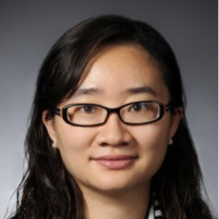Zengyi Shao
Hershel B. Whitney Associate Professor
Iowa State University
Department of Chemical & Biological Engineering
Abstract
The prospect of leveraging naturally occurring phenotypes to overcome bottlenecks constraining the bioeconomy has marshalled increased exploration of nonconventional organisms. This presentation will begin with discussing the status of non-conventional eukaryotic species in bioproduction, the evaluation criteria for effectively matching a candidate host to a biosynthetic process, and the genetic engineering tools needed for host domestication. I will particularly delve into innovative spatiotemporal modulation strategies that potentiate more refined engineering capabilities.
We recently identified the shortcomings of the conventional genome editing strategies and developed a new CRISPR platform, named Lowered Indel Nuclease system Enabling Accurate Repair (LINEAR), which enabled precision editing without interfering the native prominent nonhomologous end joining (NHEJ) mechanism. Tested in four distinct industrially relevant yeast species, LINEAR led to homologous recombination (HR)-based genome editing efficiencies of 67-100% with procedures shortened from two weeks to merely five days. More importantly, with NHEJ preserved, we demonstrated its ability to survey genomic landscapes, identifying loci whose spatiotemporal genomic architectures yielded favorable expression dynamics for heterologous pathways. A case study demonstrated how to leverage an antagonizing pair of DNA DSB repair mechanisms to rapidly engineer a microbial factory to produce (S)-norcoclaurine, an entrance molecule of the large group of benzylisoquinoline alkaloids with medicinal applications.
Recognizing the convenience of exploring genomic contexts to identify variants with optimized pathway expression dynamics, we leveraged the cut-and-paste feature of the DNA transposon to randomly insert the heterologous pathways into genomic regions with distinct transcriptional environments. We benchmarked our strategy with other pathway random integration methods and demonstrated that our streamlined procedure not only shortened the library creation from ten days by half but also improved the efficiency of identifying top-performing variants to nearly 100%.
The readiness of these generic strategies opens opportunities for building more complex microbial consortia that allow for magnifying the desired features of unique nonconventional species. I will illustrate our strategies of pathway modularization, compartmentalization in distinct specialty strains, and discovery of novel transporters. These strategies collectively enabled us to effectively fine-tune long biosynthetic pathways and reduce intermediate buildup, leading to a remarkable increase in production of a high-value natural product.
Taken together, the development of radical technologies pushes the frontier of synthetic biology to explore novel species and accelerates strain engineering for generating interesting bioproducts that benefit a broader bioeconomy.
Bio
Zengyi Shao received her Ph.D. in Chemical and Biomolecular Engineering from the University of Illinois, Urbana-Champaign in 2009. She is now a Hershel B. Whitney Associate Professor in the Department of Chemical and Biological Engineering at the Iowa State University and affiliated with the NSF Center for Biorenewable Chemicals (CBiRC) and the DOE Center for Advanced Bioenergy and Bioproducts Innovation (CABBI). Her research group strives to develop platform strain-engineering technologies to explore the biochemical and biomedical potentials of high-performance microbes. She is the awardee of the National Academies Keck Futures Initiative Award (2010), the Iowa Energy Center Impact Award (2016), the NSF CAREER Award (2018), the Bailey Research Career Development Award (2021), the NIH Maximizing Investigators' Research Award (2021), and the Award for Mid-Career Achievement in Research at Iowa State University (2023).
Wednesday, October 18, 2023

Zengyi Shao
Hershel B. Whitney Associate Professor
Department of Chemical & Biological Engineering
Iowa State University
- Time: 11:00 AM
- Location: 206 Furnas Hall